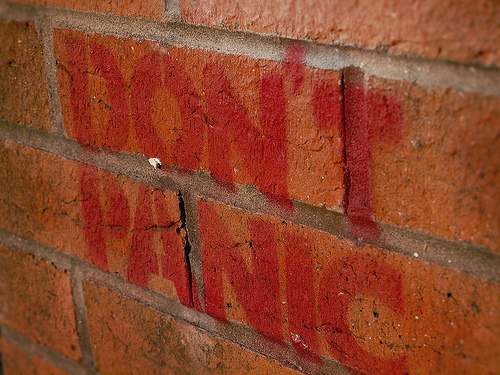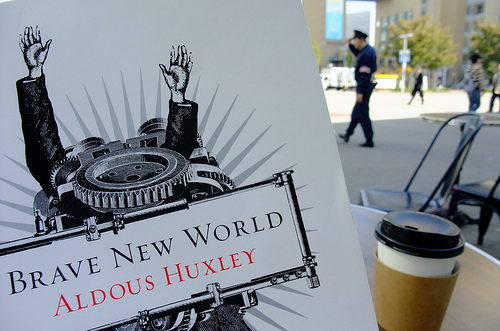Short reads: Put your three-day weekend to use

Memorial Day may be the three-day weekend most people associate with summer and barbecues, but others of us are, shall we say, a little more indoors-y? For the bookish, a three day weekend is a great chance to get caught up on some of that giant stack of "to read" books.
If you need a quick hit of completion, here are some short literary works that you can probably get through this weekend. All of these works clock in at under 50,000 words - just barely past the "novella" threshold into "novel" territory.
1. F. Scott Fitzgerald, The Great Gatsby
This one is a particularly timely suggestion, what with the spectacular Baz Luhrmann remake lurking in the theaters. (Was the movie all style and no substance? Check out what fellow blogger Laurie P. has to say about the movie.)
Gatsby is a literary classic, and one that I have long felt is overlooked by too many people. The storytelling is tight, the imagery is lush when it needs to be and bleak when it needs to be, and the various twists and turns will keep you guessing.
2. Douglas Adams, The Hitchhiker's Guide to the Galaxy
One day, average Englishman Arthur Dent wakes up to find his home is about to be demolished by a bulldozer. He goes to the pub, where he learns that the same is about to happen to Earth. Luckily, Arthur is picked up at the last minute by an interstellar rake and traveller, whereupon he becomes the galaxy's most reluctant adventurer.
If you have never read Hitchhiker's Guide, then you really really should. Even if you think you don't like science fiction, or you don't care for light humorous novels, or you simply do not like fun, Adams' classic 1979 work will prove you wrong. It transcends genre, explores the universe in a wild romp, and is Britain's #4 "Best-Loved Book" (behind Lord of the Rings, Pride and Prejudice, and His Dark Materials).

Image courtesy Flickr/owenfinn16
3. Aldous Huxley, Brave New World
Set in London in the year AD 2540, Brave New World describes a post-scarcity world with a permanently drugged population which is scientifically divided into a caste system. But what will happen when circumstances draw together a handful of malcontents?
If dystopia is more your style, then be sure not to overlook Huxley's 1931 classic, Brave New World. This book frequently shows up on lists of "100 best books," and for good reason. Huxley's cynical take on the future turns out to be as accurate as it was enlightening. Although Huxley wrote his novel to grapple with the Industrial Revolution and WWI, its social commentary is just as pertinent today as the day it was written.
4. William Golding, Lord of the Flies
When a group of British children find themselves stranded on a desert island, they revert to their true human natures. Schisms and factions form, and some children go wild, while others attempt to maintain reason and civility. Golding's book explores the conflict between our desire for power and our desire for a civilized society. Is it possible for these two urges to be reconciled?
This book about the horrors of freedom and the aggressive nature of childhood and adolescence has become a global cultural touchstone. Dark, violent, savage and unsparing, Golding's novel will haunt you for years to come.
5. John Steinbeck, Of Mice and Men
This 1937 novel set in the Great Depression follows two migrant farm workers as they move through California looking for work. George is smart but uneducated, while Lennie is as dumb as he is strong. The friendship between them both explores and tests the limits of loyalty, particularly after they arrive at a ranch populated by a belligerent boss, his overly sexual wife, and a collection of oddball ranch hands.
Of Mice and Men is one of Steinbeck's best works. It is allegorical without being heavy-handed, vividly drawn, and filled with brilliant characters. Though it is a small book, it is packed with joys, tragedy, and suspense.

Image courtesy Flickr/MDMA
6. Jean Rhys, Wide Sargasso Sea
Conceived as a postmodern, postcolonial prequel to Jane Eyre, Dominican-born author Jean Rhys explores the life and childhood of Bronte's Bertha Mason (renamed Antoinette Cosway) in Jamaica before she was unhappily married to Mr. Rochester and shipped off to England.
Wide Sargasso Sea is a fascinating enough book on its own merits, but it will obviously be most compelling to those who are familiar with Jane Eyre. Rhys rehabilitates and reimagines Charlotte Bronte's "madwoman in the attic" as a Creole woman being stifled by a patriarchal society, unable to fit in with either the white colonialists or the black Jamaicans.
Image courtesy Flickr/Johnson Cameraface

1 comments